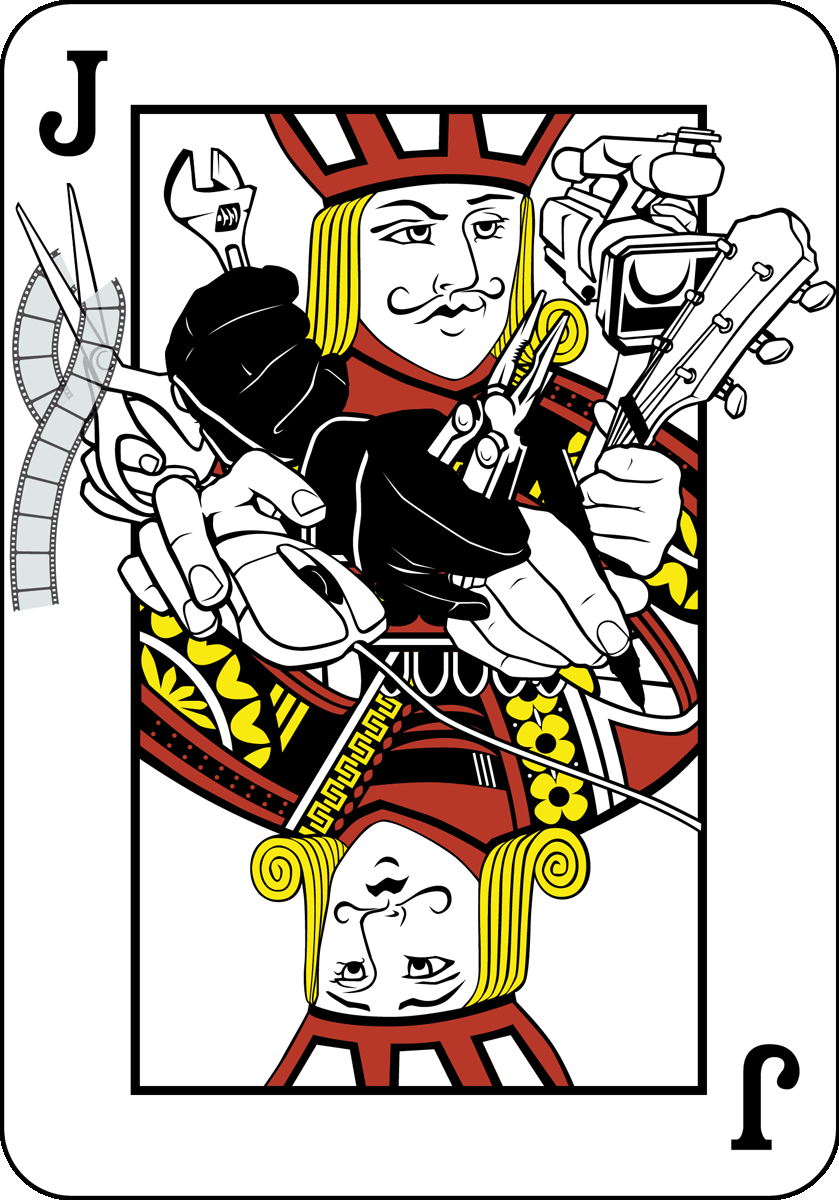So – what is a Dilettante and what does he do?
Well, that depends on who you ask.
Actually, it depends on when you ask. As in what historical time-period.
You see, it used to be that the word “dilettante” meant someone with a lot of interests and the means to pursue those interests (whether that be time, money, energy, curiosity, etc.). And this was looked at as a positive attribute.
From Dictionary.com:
Word Origin and History for dilettante (n.)
1733, borrowing of Italian dilettante “lover of music or painting,” fromdilettare “to delight,” from Latin delectare (see delight (n.)). Originallywithout negative connotation, “devoted amateur,” the pejorative senseemerged late 18c. by contrast with professional.
But nowadays, in our specialized and organization-driven society, we look at one with various and seemingly unconnected interests as a bad thing. A distraction and a dilution of brain-power.
The current definition of the word “dilettante” implies a dabbler or an amateur (more on this word in a second) – someone who pretends to have knowledge but only possesses cursory knowledge that he passes off for deeper understanding or intelligence.
I believe widely-known social psychologist and author of the NYT Best-seller, Flow, Mihaly Csikszentmihalyi, describes the issue with the greatest clarity:
“There are two words whose meanings reflect our somewhat warped attitudes toward levels of commitment to physical or mental activities. These are the terms amateur and dilettante. Nowadays these labels are slightly derogatory. An amateur or a dilettante is someone not quite up to par, a person not to be taken very seriously, one whose performance falls short of professional standards. But originally, “amateur,” from the Latin verb amare, “to love,” referred to a person who loved what he was doing. Similarly a “dilettante,” from the Latin delectare, “to find delight in,” was someone who enjoyed a given activity. The earliest meanings of these words therefore drew attention to experiences rather than accomplishments; they described the subjective rewards individuals gained from doing things, instead of focusing on how well they were achieving. Nothing illustrates as clearly our changing attitudes toward the value of experience as the fate of these two words. There was a time when it was admirable to be an amateur poet or a dilettante scientist, because it meant that the quality of life could be improved by engaging in such activities. But increasingly the emphasis has been to value behavior over subjective states; what is admired is success, achievement, the quality of performance rather than the quality of experience. Consequently, it has become embarrassing to be called a dilettante, even though to be a dilettante is to achieve what counts most—the enjoyment one’s actions provide.”
In naming my site “The Dilettante,” I am doing three things:
- A somewhat rebellious or mischievous “up yours” to the conformist advisors. The people who told me, “the worst thing you can be is a ‘jack of all trades.’”
- Promoting an (old) idea in hopes of starting some of the conversation.
- Helping to inspire and encourage my personal goal to become the older definition and not the current definition – as I am still caught somewhere in the middle. In fact, I am not a professional, but rather a dilettante writer.
To be clear, I am very familiar with the position that one who tries to learn everything ends up learning nothing. I’ve read the famous Russian proverb: “the man who chases two rabbits catches neither.” And I do not necessarily disagree.
But I am also weary of a single-minded, specialized approach, as I believe that it potentially creates a creative dead-end or tunnel-vision. Adam Grant, Wharton Professor and two-time NYT Best-seller says: “Originals don’t tend to have the deepest expertise in their field; they tend to have the broadest experience.” What Steve Jobs called a different “bag of experiences.” [click here for more on Grant and Originals].
Perhaps the sweet spot is somewhere in the middle. Maybe having your one main pursuit and mixing in different smaller projects or interests in your free time. Or maybe it’s having multiple major pursuits sequentially. So five years in tech, five years in movies, five years in academia, etc.
Unfortunately, I have no idea, nor do I have any credibility, having not actually “done” anything. In fact, I probably still fit the current definition.
Fortunately, there are more credible evangelists like long-time producer Brian Grazer, Adam Grant, Steve Jobs and Csikszentmihalyi.
Would love to here some thoughts on this.
Besos,
-The Dilettante – J



6 Comments on “Why Dilettante?”
I definitely like the idea of enjoying the experience instead of worrying about the performance in activities that you have no intention of mastering. I do think that if you are trying to master a particular trade, you need to have a laser focus.
Agreed on the focus for mastery – though there are tons of examples of “masters” bringing in concepts from other fields and experimenting in other areas to further their mastery. e.g. Arnold learning ballet to become a more graceful bodybuilder. Perhaps more interestingly, Einstein credited his knowledge of music for his theory of relativity. From a conversation with musician Shinichi Suzuki: “The theory of relativity occurred to me by intuition, and music is the driving force behind this intuition. My parents had me study the violin from the time I was six. My new discovery is the result of musical perception” (Suzuki, 1969, 90)
This is the one true failing of Capitalism. I am a die hard true Capitalist in the original sense of the word – the freedom from physical force. Capitalism relies on specialization and the division of labor as the mechanism to enhance wealth formation. The Western world has taken this to the extreme for now. The softer arts and the pursuits thereof have been relegated to a sort of ´´Child´s Play´´ awaiting the ´´adulting´´ process. Many of the choices in life that I have made were done so out of obligation. I had a large family and a larger mortgage and during the course of fulfilling those obligations, I had no time to consider what I love.
I have owned four construction companies, was a Title 38 attorney and served in the military for seven years. I have an Economics degree – dilettante by today´s standards but not yesterday´s. I found purpose and meaning in all of my pursuits but they never fulfilled ME.
Now that my kids are grown, I am studying singing and playing the guitar. I am reading Shakespeare and Seneca. I am listening to Alan Watts. Nothing is more fun. I hate construction. There I said it. Out loud. Fuck construction.
Remember the story of Lew at the Gate. If you don´t know it, send me a message. It gives true meaning to the value of being the ´´Jack of all trades.´´
Eric – I can’t believe it, but I never saw this comment. Hilarious and right on. Thanks for reading and writing. I’d love to follow your path! What is “Lew at the Gate?”
I thoroughly enjoyed all of the above discussion and I am not familiar with the story of LEW AT THE GATE.
Could you post it?
Pingback: Best 17 Dilettante In Love Meaning - Blog Tiền Điện Tử